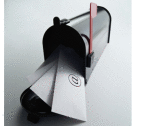State Agencies Encourage Horse Owners to Vaccinate their Horses Against Diseases
State Agriculture Commissioner Darrel J. Aubertine, State Health Commissioner Nirav R. Shah and State Gaming Commission Acting Director Robert Williams today urged horse owners across New York State to vaccinate their horses against Eastern Equine Encephalitis (EEE) and West Nile Virus (WNV). In 2012, two cases of EEE were reported in horses in New York State, as well as seven WNV cases. No confirmed cases of either disease have been reported thus far in 2013.
“Every year in New York, cases of Eastern Equine Encephalitis and West Nile Virus pop up in horses across the state – diseases which are largely preventable,” said Commissioner Aubertine. “Good prevention programs are a key component to any animal health plan and I encourage horse owners across New York to take the necessary precautions and vaccinate their horses against these diseases today.”
While it is preferable to vaccinate horses against these diseases in the spring before the mosquitoes that transmit them are active, early summer is not too late, since New York often has mosquito activity into the month of November. Vaccines for EEE and WNV can be effective for six to twelve months, and horses should be re-vaccinated at least annually. In an area where the diseases occur year round, many veterinarians recommend vaccinations every six months. For the vaccine to be effective, it must be handled and administered properly, prior to an anticipated increase in mosquito activity in a local area. For these reasons, state veterinarian David Smith recommends that the vaccines be administered by a veterinarian.
Other prevention methods include eliminating standing water breeding sites for mosquitoes, using insect repellents and removing animals from mosquito-infested areas during peak biting times, usually from dusk to dawn. In addition, water in water troughs should be changed at least twice a week to discourage mosquito breeding.
There is no human vaccine for EEE or WNV. The best way to protect yourself is to keep mosquitoes from biting you. EEE is rare but serious and can affect both people and horses. Five cases have been diagnosed in humans in New York State since 1971 and all have been fatal. Prior to 2009, there had not been a human case detected in the State in more than 25 years.
WNV is more common than EEE and can also cause serious illness or, in some cases, death. Not all mosquitoes carry WNV, but human cases have been reported in counties across the State. In 2012, there were 107 reported human cases of WNV statewide, nine of which were fatal.
To greatly minimize exposure to WNV and EEE, the New York State Department of Health (DOH) recommends that people take precautionary measures, such as wearing shoes, socks, long pants and a long-sleeved shirt when outdoors for a long period of time. People are also advised to apply appropriate mosquito repellent according to the label’s instructions and to remove all standing water from their property.
“In addition to the health risks posed to the general public, West Nile virus and EEE can cause serious problems for horses and their owners and handlers in New York State,” said State Health Commissioner, Nirav R. Shah M.D., M.P.H. “Thankfully there is an inexpensive vaccine to protect horses, but their handlers should also take appropriate precautions to protect themselves from mosquito bites.”
Horsepersons working at New York racetracks, where large concentrations of horses are stabled, should especially heed the recommendation to have horses vaccinated and take necessary precautions to reduce the risk of EEE or WNV. The New York State Gaming Commission’s on-track staff is monitoring facility conditions and working with track management to reduce mosquito-infested areas.
“An additional ounce of prevention goes a long way to protecting equine athletes,” said Robert Williams, Acting Executive Director of the New York State Gaming Commission. “We will continue to partner with our colleagues at the Department of Agriculture and Markets and track operators to make sure that horses are kept in the safest environment possible.”
Humans cannot become infected by handling or being exposed to an infected horse. Horses cannot spread either virus to or from other horses, people or pets. From a veterinary perspective, mosquitoes transmit both diseases from birds to horses.
Typical symptoms of EEE in equines include staggering, circling, depression, loss of appetite and sometimes fever and blindness. Clinical signs of WNV in horses include lethargy, weakness in the hind quarters, stumbling, lack of awareness, head tilt and head twitching, convulsions, circling, partial paralysis and coma.
Horses exhibiting neurologic signs like those listed above need to be promptly reported by veterinarians to the State Department of Agriculture and Markets’ Division of Animal Industry at (518) 457-3502, in addition to the local health department.
Horses suffering from neurologic problems must always be handled with extreme caution, since they may be unpredictable and there is also the possibility that Rabies may be the cause.
Vaccines are available to drastically reduce the incidence of EEE and WNV in horses.
If you have any questions about your horses vaccination status please call the clinic at 585-243-5560
 Tuesday, September 3, 2013
Tuesday, September 3, 2013 

